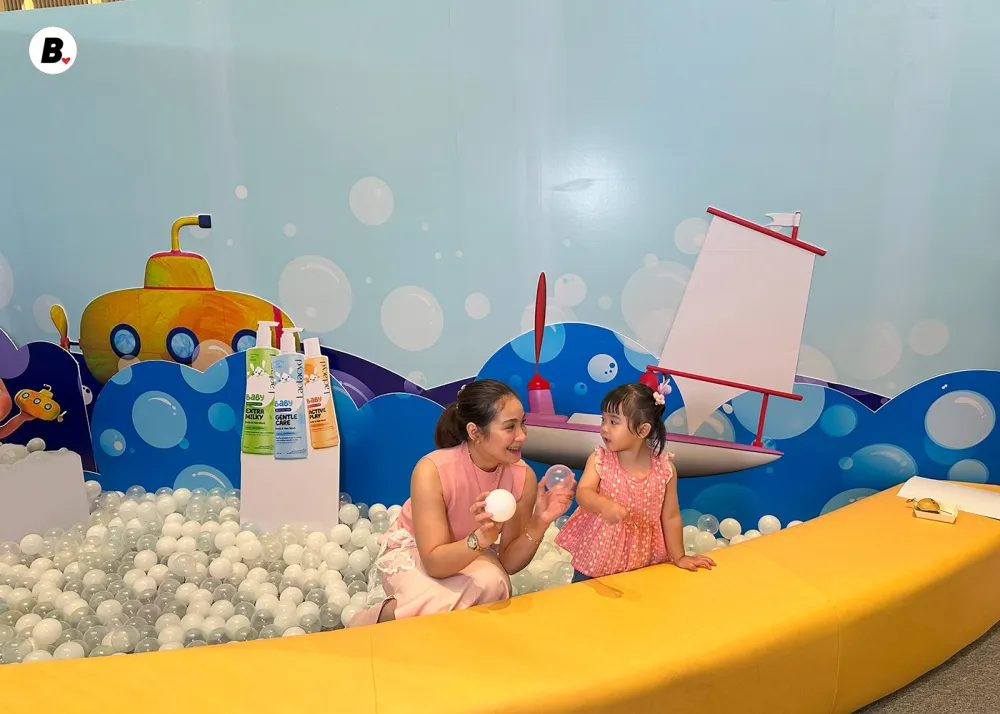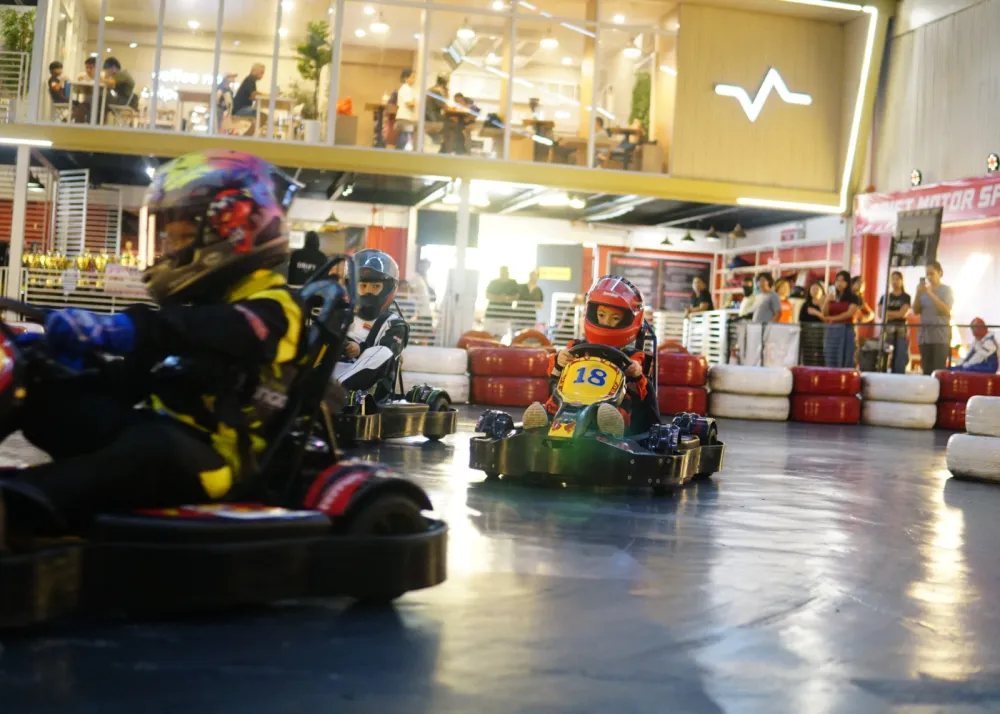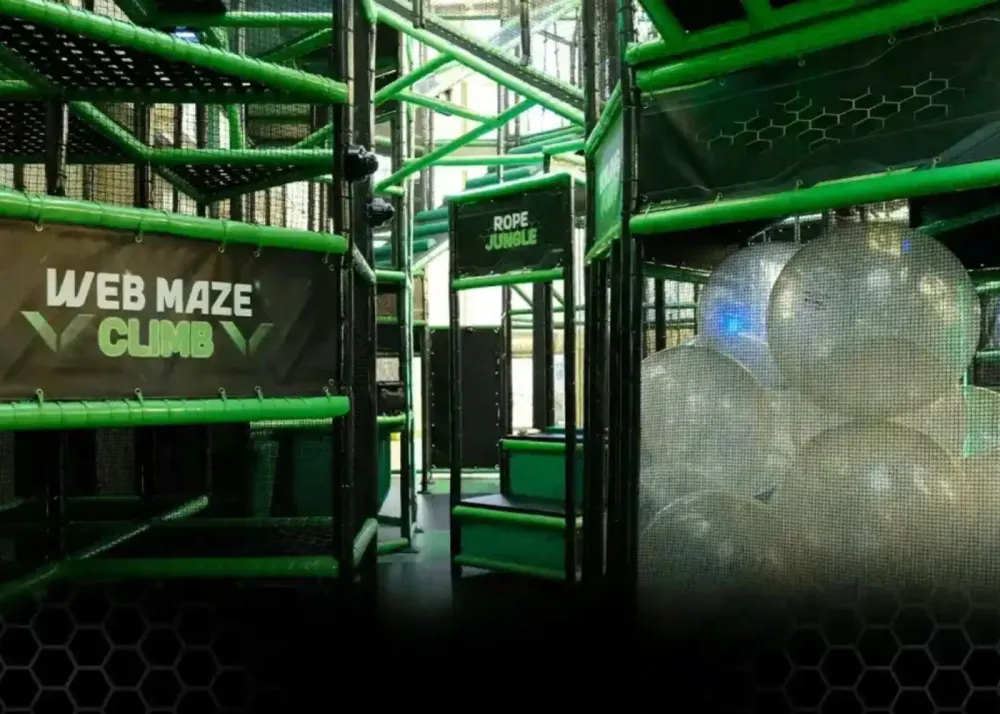Filipino Mom Reveals What It's Like to Raise an Emotionally Intelligent Kid

When dealing with emotions, the common yet meaningful question that comes to mind is, “When is it okay not to be okay?”
Admitting you’re not okay is always the first step to treating ourselves kindly and understanding that it’s alright to feel whatever emotions we go through. But for toddlers, emotions and impulses are common since they’re learning the concept of self-control. Although these abilities can be learned as kids grow older, it is still essential for parents to make a significant emotional investment in their children for them to become emotionally intelligent.
The Beat Asia had a fun and meaningful talk with Jonisa Padernos, a Filipino mom of two kids, originally from Talisay, Metro Cebu, but now residing in Prince George, British Columbia, Canada.
Jonisa proved that there is a unique and profound emotional bond that exists between a mother and child. Last March 29, Jonisa shared a heartfelt “bedtime conversation” video of her and her four-year-old son Aldie, which garnered praise and positive comments online. As of writing, the video has more than 300,000 views, 18,000 likes, 900 comments, and counting.
The video showed how well the toddler beautifully communicated his emotions. He explained to his mom how he would allow himself to feel upset and angry, then work through those emotions by “making a smart choice” to feel better again.
Jonisa revealed that she did not expect that their video would go viral, as she posted it for the sake of “good vibes.” Since Aldie was still a baby, she has been uploading random videos on Instagram and TikTok.
The fact that many people appreciate their son’s ability to communicate his feelings well is a heartwarming experience for them as parents because their efforts and patience in raising Aldie were acknowledged.
Raising an Emotionally Intelligent Kid
Books are a no-brainer in terms of sources of knowledge. Parenting books can be especially useful for first-time parents who are trying to learn more about their child’s behavior, strengths, and needs. However, Jonisa is not the kind to read parenting manuals; just like many things in life, she would rather “wing it!”
Growing up, Jonisa didn’t build a close relationship with her father, who worked as a seafarer back then. But she knew her dad had to work to support them, so she couldn’t blame him for sacrificing his time and being away from the family. There was a time when she couldn’t even recognize him when he returned because video calls were not common back then.
“I think ‘yun talaga [yung ayaw ko mangyari sa mga anak ko], kaya sabi ko sa husband na kahit ano mangyari parang ‘all for one, one for all’ tayo. Kung sa’n ang isa, dun din ang isa. Walang maiiwan.”
(I think that's really [what I don't want to happen to my children], so I told my husband that no matter what happens, we are like 'all for one, one for all.' There is always the other one present wherever one is. No one will be left behind).
During the interview, Jonisa said she was focused more on “changing” this cycle within her own family. At present, Aldie is now in preschool, which he attends twice a week with a two-and-a-half-hour class daily.
As a mom, Jonisa knows that letting Aldie interact with other kids sometimes is also a big help for his well-being. She admitted, however, that they were kind of hesitant at first, as they wanted to be with him always and watch him closely, that’s why they never thought of enrolling Aldie in nursery school before.
Apart from forming a strong bond with her kids, she wants her children to know that having a “voice” in the family matters. She started to foster her child’s emotional intelligence by simply letting them talk and reflect about how their day went.
“[F]or example, aalis kami, pero di pa siya nakaka-talk nun, tapos every time pagbalik namin ng bahay [at] nandito ‘yung papa nya, talagang ine-encourage ko siya [na], ’Oh, sabihin mo sa papa mo ano [‘yung] ginawa natin. Ano [yung] nakita mo.’ Tapos tina-try nya, pina-process niya kung ano ‘yung ginawa namin kanina, parang iniisip niya. Feel ko ‘yun yung nakaka-help… At the end of the day, kasi gusto kong i-recall nya ‘yung nangyari earlier para [masanay] ‘yung memory nya, yung brain nya.”
(For example, we're going outside, but during that time he cannot speak well yet, then every time we go back home [and] his dad is there, I really encourage him [to] ’Oh, tell papa, what did we do? What [did] you see?’ Then he will try to remember what we did earlier. I feel like that really helps... At the end of the day, I want him to recall what happened earlier to [stimulate] his memory, his brain).
When asked about her “self-taught parenting skill,” Jonisa said raising Aldie to be an emotionally intelligent kid is not something that can be accomplished overnight. She revealed that it was a lengthy process before Aldie could recognize his emotions and empathize with others.
“Talagang it takes a long time para ma-achieve ‘yun. Kahit ngayon, meron pa ring times na nahihirapan siya. [P]ero at least, you know, na-e-express niya. Wag niyong i-label, [parang] kung ano tingin [mo as a parent], [hindi ibig sabihin na] ‘yun na ‘yung nararamdaman niya. Dapat i-encourage mo na i-describe ‘yung feelings nila. Even though hindi pa sila [nakakapagsalita] or even can’t form words, they can say yes or nod to agree and give them choices, [like] are you sad? Are you mad?”
(It really takes a long time to achieve that. Even now, there are still times when he struggles [with his emotions]. But at least, you know, he tries to speak up. Don't label [their emotions], if that is what you believe [as a parent], [it] doesn’t necessarily mean you’re always right. Even though they haven't [been able to talk] or even if they can't form words, they can say yes or nod to agree and give them choices, [like] are you sad? Are you mad?)
Now that Aldie is four years old, he can thoughtfully express his feelings. He can tell whether someone is upset in the family simply by observing their facial expressions. He was the sunshine of the family, always ready with a joke or a made-up humorous story to brighten his parents' day. Just like most parents, Jonisa is also a proud mom because of Aldie.
“Mabait talaga siya, may moments lang talaga na naghahanap ng atensyon kasi bata. Pero very sensitive siya sa surroundings, sa mga taong nakapalibot sa kaniya . Hindi matapos-tapos magsalita ‘tong batang ‘to. [M]insan gagawa-gawa na siya ng story para lang may ma-chika siya.”
(He is incredibly kind, although there are moments when he's seeking for attention simply because he's a kid. But he's very sensitive to his surroundings, to the people around him. This boy never stops talking. [Sometimes] he would make up a story just to have a chit-chat.)
‘Children Are Like Little Sponges’
Scientifically speaking, children’s brains develop faster than any other parts of their body throughout the first five years.
“Children, especially in the early years, are like little sponges, absorbing all the information around them and then actively making sense of it,” University of East London Professor of Early Childhood at the Cass School of Education and Communities Dr. Eva Lloyd said in a report by Theirworld in 2018.
In the same breath, Jonisa agrees! Based on her experience and observation, kids absorb what their caregivers or parents do and say, describing Aldie as a reflection of herself in the mirror.
“[K]asi minsan si Aldie sinasabihan ako. Like, for example, ’That’s okay, mama, we all make mistakes,’ so parang [ako], ’Sinabi ko ‘yun sayo ah? Tapos ngayon sinasabi mo na sakin’ parang ganun. If you want ‘yung kids mo [maging] aware sila sa emotions nila, kailangan din as a parent, be honest din kung anong nafe-feel mo.”
(Aldie would sometimes remind me. Like, for example, [he will say] ’That's okay, mama, we all make mistakes,’ so [I] was like, ’I told you that, right? Then now you're telling me [those words].’ If you want your kids [to be] aware of their emotions, it's also necessary for you as a parent to be honest about how you feel.)
Her family makes it a habit to remind each other to “stop, breathe, and make a smart choice” when one feels mad. It inspired her to communicate more often with her kids and accept that nobody’s perfect. They don’t particularly have high expectations for Aldie, as he is just four years old, nor do they compare him to other children his age, but they were amazed that he can articulate his emotions in a healthy way.
Terrible Twos?
The term “terrible twos” is perceived as an observed behavior among two-year-old children because they tend to change moods rapidly, meaning tantrums are likely common during this phase of development.
With Aldie, Jonisa is proud to say he did not undergo that phase because he is a “very expressive kid.” Nonetheless, the key is open communication and patience.
“Communicate lang talaga with the kids. Give them enough space, don’t rush, be patient. It doesn’t take overnight; it takes a lot of patience and a lot of meltdowns din. Pero believe it or not, si Aldie noon, hindi ko maalala talaga na nag-tantrums siya kasi very expressive talaga siya na kid. Hindi siya ever nag-meltdown. I feel na more challenging, nung nag-three siya kasi nagka-baby kami ulit. Parang may change kasi, yung attention hindi na sa kanya lahat. Dun talaga nag-change, so dun kami medyo nahirapan. Pero we’re slowly learning lahat kami nagle-learn while navigating this, you know, family of four na from family of three.”
(All you must do is communicate with the kids. Give them enough space, don't rush, be patient. It doesn't happen overnight; it takes a lot of patience and a lot of meltdowns, too. But believe it or not, I don't really remember Aldie throwing tantrums back then because he is a very expressive kid. He never had a meltdown. I felt parenting was more challenging when he turned three because we welcomed our second child. There seems to be a change [because] the attention is no longer focused solely on him. But we're slowly learning; we're all learning while navigating this, you know, growing to a family of four from a family of three.)
Motherhood, Postpartum Depression
While it’s true that being a parent is rewarding as you watch your kid’s life blossom through the years, it is also a fact that it’s not all sunshine and rainbows. There will be moments when the monotony of your daily life and the weight of your responsibilities can feel like they're sucking the life out of you.
As a first-time mom to Aldie, Jonisa was not spared from the baby blues, commonly referred to as postpartum depression. New moms may go through a whirlwind of emotions after giving birth due to a sudden drop in hormone levels.
Jonisa shared that she experienced crying spells because she lacked sleep and couldn’t properly use the bathroom because Aldie easily woke up at the slightest noise and movement. She also suffered from mastitis – a painful inflammation in the breast caused by an infection due to a clogged milk duct, leading to a warm, red, wedge-shaped breast lump.
Although that experience was excruciating, Jonisa admitted that she somehow missed those moments and that she would change her outlook by making the most of it rather than wallowing in misery. As for her second baby, Amelie, she’s wiser and more relaxed as she has already experienced rearing a newborn.
“[Sa] second baby, sabi ko nga natuto na ‘ko. Kung ‘di siya matulog, ayaw ko pilitin. Pero nahirapan [din] ako sa pag-look after two kids from one. Parang very big adjustment sa’kin. May konting mom rage ‘yung feeling ko noon…pero naging okay naman after a while.”
(As I've mentioned before, by the time I had my second child, I had matured and learned [my lesson]. If she doesn’t want to sleep, I won't force her to. But I [also] had a hard time looking after two kids from one. It seems like a very big adjustment to me. I felt a little mom rage at the time… but I became okay after a while.)
Mother’s Day Celebration
As a growing family, Jonisa and her husband make sure that their bond is always strong and very tight. They are the kind of family who enjoys their own intimate group and would love to celebrate special events inside the serene confines of their home.
While Jonisa would prefer something simple for Mother's Day, it's probable that her husband will prepare his own spin on steak for the occasion.
“Wala naman masyadong fancy. Usually, ‘yung husband ko nagluluto ng special steak. Mga pagkain na special. Dito lang sa bahay…kasi ‘di kami outgoing masyado na [family]. May sarili kaming comfort zone kasi gusto namin ‘yung peaceful lang, meron kaming maliit na circle. So yeah, kami kami lang.”
(Nothing too fancy. Usually, my husband cooks a special steak. Foods that are special. Just here at home… because we're not an outgoing [type of family]. We have our own comfort zone because we want a peaceful ambiance, [and] we have a small circle. So yeah, it's just us.)
Parenting Advice
Raising an emotionally intelligent kid, like Aldie, is a learning process for both the kid and the parent. It may sound silly to communicate with your baby like an adult when they can’t talk yet, but for Jonisa, it worked!
Her nightly talks with Aldie became their safe space to express his innermost thoughts and feelings, as everything is calm and there are no gadgets nor other distractions.
“Hindi naman tayo perfect, [and] there will be challenges and hardships along the way pero you know, you just accept it na it’s a learning curve. It’s going to be like that for a while, kasi habang nagro-grow sila, tayo din nagro-grow, kailangan pa din natin [matuto].”
(We are not perfect, [and] there will be challenges and hardships along the way, but, you know, you just accept that it's a learning curve. It's going to be like that for a while, because while they are growing, we are also growing, we still need to [learn])
Get the latest curated content with The Beat Asia's newsletters. Sign up now for a weekly dose of the best stories, events, and deals delivered straight to your inbox. Don't miss out! Click here to subscribe.







































































